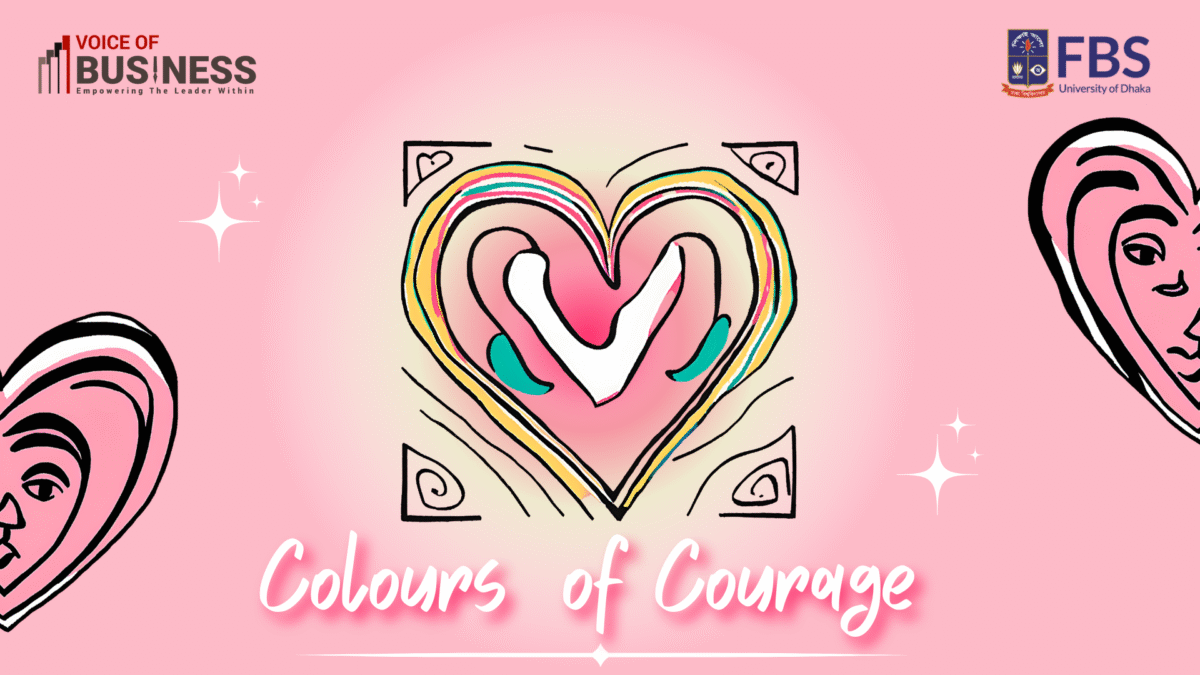Colours of Courage

The Story of Shahana: Architectural Activism in Bangladesh
June 3, 2025
Echoes of Art
June 3, 2025In the bustling streets of Dhaka, Jalal, a young street artist, wielded his paintbrush with a mission: to break the stigma surrounding menstruation. His murals, vibrant and thought-provoking, depicted scenes of women and girls, accompanied by messages about menstrual health and the importance of awareness. Despite his noble cause, Jalal was often met with scorn and ridicule.
“Period Poet,” they called him mockingly. Young men his age laughed at his efforts, accusing him of seeking attention. Some older members of the community, like the respected Mr. Abbas, saw his work as vulgar and unnecessary.
One sweltering afternoon, as Jalal was finishing a mural of a young girl holding a sanitary pad with the words “It’s natural, not shameful” emblazoned above, Mr. Abbas approached him. “Jalal, stop this nonsense,” Mr. Abbas scolded. “These drawings are inappropriate for public walls. You’re embarrassing our community.” Jalal’s heart sank. He respected Mr. Abbas and valued his opinion. Feeling defeated, he considered abandoning his efforts.
Meanwhile, Mr. Abbas’s granddaughter, Nikita, is a bright and cheerful girl in class six. One day, on her way to school, Nikita experienced her first period. She was unprepared and terrified as she noticed the bloodstain spreading on her uniform. Embarrassed and scared, she was mocked by a group of boys, who noticed her distress. Overwhelmed, she ran from them, tears streaming down her face.
Jalal, returning from his latest mural, saw Nikita’s distress and quickly understood what had happened. He gently approached her. “Nikita, it’s okay,” he said softly. “Come with me, I’ll help you.”
He took her to the Union Medical Officer, Dr. Rumana, affectionately known in the community as “Daktar Apa.” Dr. Rumana calmly explained to Nikita what was happening and provided her with the necessary sanitary products. She also called Nikita’s family to inform them.
When Mr. Abbas arrived at Dr. Rumana’s office, his initial anger at being called away quickly turned to concern for his granddaughter. As Dr. Rumana explained the situation, Mr. Abbas felt a deep sense of shame and realization. He understood the importance of Jalal’s work in educating the community about menstruation. Determined to make amends, Mr. Abbas decided to confront his own ignorance and the community’s resistance head-on. That evening, he called a meeting of the local elders and influential figures.
“Friends, I have wronged Jalal and, by extension, all of you,” he began. “Today, my granddaughter faced a situation that many of our women and girls face, and it was Jalal’s awareness that helped her. We must support his efforts, not hinder them.”
The elders were sceptical, but Mr. Abbas’s passionate plea began to change some minds. However, there were still those who opposed the idea, leading to a heated debate. The meeting ended without a clear resolution, but the seed of change had been planted.
The next day, Jalal found one of his murals defaced with hateful graffiti. He felt crushed, but also more determined than ever. That night, he painted a new mural, his most powerful yet: a large, heart-shaped design incorporating the faces of women from the community, including Nikita and Dr. Rumana, with the words “Together, We Stand Strong.”
The mural became an overnight sensation, drawing crowds and sparking discussions. Seeing the community’s reaction, Mr. Abbas took a bold step. He organized a public seminar on menstrual health, inviting Dr. Rumana to speak and featuring Jalal’s artwork as a backdrop. The turnout was overwhelming, and many women shared their stories and experiences, breaking years of silence.
However, the true climax came when Nikita, with a trembling voice, took the stage. “I was scared and ashamed,” she said, “but thanks to Jalal, I learned that it’s normal. We need to talk about this, so no other girl has to feel like I did.”
Her words moved the audience deeply. Even the most sceptical attendees began to see the importance of the cause. Mr. Abbas, teary-eyed, embraced Jalal publicly, signalling a new era of support and understanding.
With the community now behind him, Jalal’s murals flourished, and his message spread beyond their neighbourhood. The seminars became regular events, educating countless people and slowly eroding the stigma around menstruation. The “Period Poet” was no longer a term of mockery but one of respect and admiration.
Author: Nurshalin Shifat




